Freelancers often juggle multiple projects and deadlines, but how many actually know where their precious hours vanish? Enter time tracking—your new best friend that’s here to rescue you from the clutches of chaos. Imagine a world where you can pinpoint exactly how long you spent brainstorming that brilliant idea versus scrolling through cat memes. Sounds dreamy, right?
Time tracking isn’t just about clocking hours; it’s a game-changer for boosting productivity and maximizing profits. By keeping tabs on time, freelancers can charge clients accurately and avoid the dreaded “Wait, I did what for how long?” conversation. Plus, it adds a sprinkle of accountability to your workday. So, let’s dive into the world of time tracking and discover how it can transform your freelance hustle into a well-oiled machine—minus the oil spills.
Table of Contents
ToggleThe Importance Of Time Tracking For Freelancers
Time tracking enables freelancers to gain insight into their work patterns. Understanding where time is spent allows for better management of multiple projects. Accurate records can reveal inefficiencies, helping identify areas for improvement. This practice fosters accountability in billing and project completion.
Increased productivity results from effective time tracking. When freelancers know how long tasks take, they can estimate future projects more accurately. This leads to enhanced client relationships, as clients appreciate transparency in time spent.
Monitoring hours helps in setting appropriate rates for services. Freelancers can charge based on actual work completed instead of estimates. This approach maximizes profits and ensures fair compensation.
Moreover, time tracking can alleviate stress during busy periods. Having a structured overview of work assists in prioritizing tasks. Freelancers can allocate time based on project deadlines and urgency.
Using time tracking tools streamlines workflow. Automation reduces administrative tasks, allowing freelancers to focus on core competencies. These tools often integrate with project management systems, creating a comprehensive view of progress.
Evaluation of tracked data leads to informed decisions. Trends in productivity can drive strategic adjustments to work habits. Continuous improvement becomes possible through regular analysis of time spent on various tasks.
Investing in time tracking contributes significantly to a freelancer’s success. With clarity in operations, freelancers can work smarter, enhance efficiency, and achieve their professional goals.
Benefits Of Time Tracking Tools
Freelancers gain significant advantages from using time tracking tools. These tools optimize workflow, improve project management, and enhance overall efficiency.
Improved Productivity
Tracking time leads to increased productivity. Understanding how hours are spent helps freelancers identify time-consuming tasks. With this awareness, they focus on high-priority activities that drive results. Additionally, setting specific work intervals enhances concentration, reducing distractions. This structured approach influences greater output, ultimately allowing freelancers to meet deadlines more effectively.
Accurate Invoicing
Accurate time tracking ensures freelancers bill clients correctly. Documented hours serve as evidence of work completed, promoting transparency. Clients appreciate receiving detailed invoices that match the time spent on projects. Furthermore, knowing the exact hours worked helps freelancers set competitive rates, ensuring fair compensation. Such precision fosters trust in client relationships, resulting in stable long-term partnerships.
Popular Time Tracking Tools For Freelancers
Freelancers can choose from a variety of time tracking tools that cater to their unique needs. These tools simplify the process of monitoring hours, facilitating better project management.
Tool Comparison
| Tool | Key Features | Price Range |
|---|---|---|
| Toggl | One-click time tracking, reporting features | Free to $20/month |
| Harvest | Invoice integration, project tracking | Free to $12/month |
| Clockify | Unlimited users, customizable dashboards | Free to $9.99/month |
| RescueTime | Automatic tracking, productivity analysis | Free to $12/month |
| Time Doctor | Employee monitoring, screenshots, reminders | $10 to $20/month |
Each tool offers distinct advantages depending on the complexity of the tasks. Toggl excels in simplicity with its one-click functionality. In contrast, Harvest stands out for its integrated invoicing capabilities. For teams, Clockify allows for unlimited users at no cost, but offers premium features for a fee.
Features To Look For
Freelancers should consider several key features when selecting a time tracking tool. User-friendliness remains essential, ensuring quick adoption and minimal learning curve. Reporting capabilities help visualize time allocation and identify improvement areas.
Integrations with existing tools enhance workflow efficiency. Look for invoicing features that facilitate seamless payments from clients. Additionally, mobile app access allows freelancers to track time on the go, making it easier to log hours accurately.
Best Practices For Time Tracking
Establishing a routine for tracking time significantly enhances a freelancer’s efficiency. Regularly logging hours helps in identifying patterns and areas for improvement. Choosing the right time tracking tool streamlines the process and integrates seamlessly with project management systems.
Setting specific goals for each project creates a focused approach, allowing freelancers to allocate time effectively. Checking productivity trends weekly provides insights into work habits and helps adjust priorities as necessary. Using reminders for breaks ensures sustained concentration and reduces burnout.
Implementing clear categorizations for different types of tasks allows for more precise tracking. Assigning labels to projects can simplify reporting, making it easier to analyze time spent on each task. Sharing tracked data with clients fosters transparency, enhancing trust and strengthening professional relationships.
Reviewing and evaluating time logs regularly leads to informed decision-making. Freelancers can adjust their workflows based on insights gathered from previous tasks, helping to boost overall productivity. Maintaining organized records of hours spent supports accurate invoicing, ensuring clients see the true value of the work completed.
Comparing projected time against actual time spent provides an opportunity for continuous improvement. Adopting these practices not only optimizes time management but also empowers freelancers to achieve greater success in their careers.
Challenges Freelancers Face With Time Tracking
Freelancers encounter several challenges with time tracking that can impact their productivity. One common issue involves maintaining consistent logging of hours. Forgetting to track time throughout a busy day can lead to inaccurate records, making it difficult to bill clients accurately.
Another challenge is managing distractions. Freelancers often juggle multiple projects and clients, leading to interruptions that hinder focus. These distractions can skew time tracking data, resulting in less reliable insights into work habits.
Understanding project scope also presents difficulties. Some freelancers struggle to estimate how long tasks will take accurately, leading to discrepancies between projected and actual time spent. Misestimations can affect client relationships and cause potential financial losses.
In addition, technology may pose obstacles. Not all freelancers are comfortable using time tracking tools, which can create resistance to adopting these systems. Even user-friendly applications have a learning curve, and some freelancers may find it challenging to integrate them into their workflow.
Maintaining motivation is crucial for effective time tracking. Freelancers may become discouraged if they perceive time tracking as a tedious chore rather than a valuable practice. This mindset can lead to inconsistent tracking and missed opportunities for optimization.
Finally, prioritizing tasks remains essential but often proves complex. Freelancers frequently experience an overwhelming list of responsibilities, making it hard to allocate time effectively. Without clear prioritization, freelancers may struggle to meet deadlines, ultimately impacting their success and client satisfaction.
Time tracking is a game-changer for freelancers aiming to enhance productivity and ensure fair compensation. By embracing this practice, they can gain valuable insights into their work habits and identify areas for improvement. This structured approach not only helps in meeting deadlines but also strengthens client relationships through transparency.
Choosing the right time tracking tool is essential for streamlining workflow and reducing administrative burdens. With the right strategy in place, freelancers can focus on high-priority tasks and maximize their profits. Ultimately, investing time and effort into effective time tracking can lead to greater success and satisfaction in their freelance careers.


